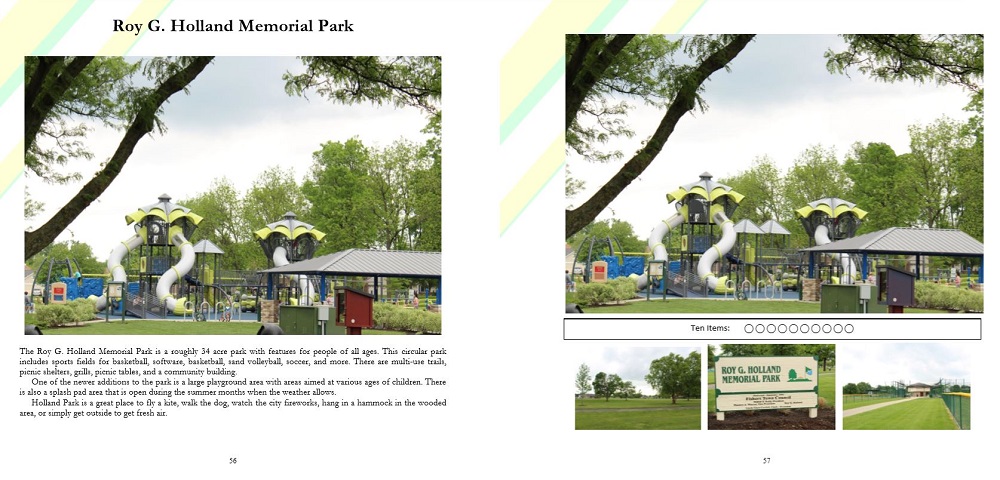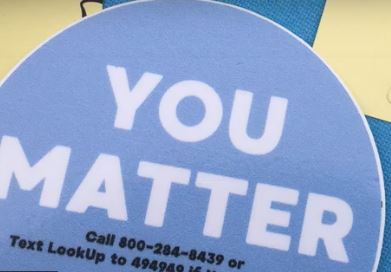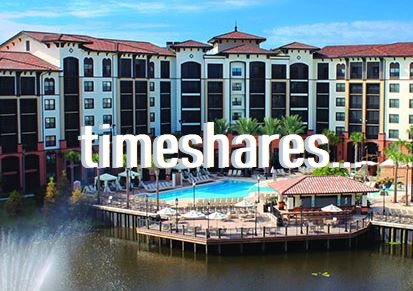By Bradley L. Jones
It is no secret to my friends and family that I own a
timeshare. What might not be known is that for my first job out of college, I
worked for a timeshare exchange company, Resorts Condominiums International
(RCI). I worked for the DeHaans, who are credited with launching the timeshare
exchange industry.
I have many conversations with people about timeshares and
timeshare ownership. Most of those who I discuss this with have been approached
to attend a timeshare presentation. Many people I know have wondered if the
reality matches the hype. A few have bought, and one has bought multiple units.
Simply put, it rarely does. Let me provide a few of my observations and some
tips about timeshare presentations and the idea of timeshare ownership.
Timeshare Presentations
If you have attended a timeshare presentation, then you’ve
experienced the high-pressure sales tactics that can be used. Timeshare
salespeople make the reputation of used car salesmen look like kids play. You
can say “no” over and over, but they will keep asking, plus they will pull
other people into the sales pitch to also ask you to buy. The pressure to buy
is intense.
Getting the Gifts
The pressure of timeshare presentations starts with gifts.
If you stay at a resort or hotel associated with timeshares, you will likely be
offered free gifts such as “hard to get” tickets, gift cards, “free” vacations,
dinners, or cash. You also see these offers of gifts at mall kiosks, “half
price ticket” booths in tourist towns, and other places. You might even get
these offers over the phone should if you applied to a raffle to win a free car
or vacation at your local mall, fair, or other location. The last resort I
stayed at offered a $125 Visa gift card to attend a presentation. Regardless of
how you come across it, most timeshare sales pitches begin with the offer of
gifts.
Tip 1: Just say no, at least at first…
If you are staying at a resort or hotel that offers you a
gift for a few minutes of your time, it is often best to say no the first offer.
I’ve stayed at several resorts where the offer at check in was as much as half
what the offer was a day or two later. A $75 Visa gift card can quickly become
$125 by simply waiting a few days, or by asking if that is their best offer.
Note 1: It will be a high-pressure sales pitch
If you are offered gifts for a few minutes of your time,
then you are undoubtably going to a sales pitch, and it will be high-pressure.
You might be told that you are simply being asked for feedback on the resort,
being given an update on resort changes, or being given an owner’s update.
Regardless of the wording, if gifts are being offered, then you are being taken
to a sales presentation.
Tip 2: Get the time commitment in writing
Sales presentations rarely last less than 90 minutes and almost
always take longer than any amount of time you are quoted. One of the biggest
complaints I’ve seen is that people feel held hostage at presentations. The
reality is, if you don’t plan, you could be held hostage. As such, you need to
mitigate any chance the resort can do that to you. To understand the extent
that you can be held hostage, read reviews on a resort prior to attending any
timeshare presentation.
I recently stayed at Westgate Smokey Mountains. There are a
very large number of public reviews that indicate the promised 90-minute
presentation went well over four hours and in some cases over five hours.
Because many people are shuttled from other hotels for the presentation, they
had no easy way to leave. Additionally, in the case of Westgate, like most
resorts, they don’t give you your gifts until after they release you at the end.
If you walk out before they release you, then you risk losing the gifts you
were promised.
Get in writing how long you are expected to be there. More
importantly, get in writing that the time starts at the time you are scheduled
(and are there). It is not uncommon to keep you waiting when you arrive, and to
also keep you waiting at other times. For example, if they are serving food,
they will often consider the time you are eating as not a part of the
presentation time – even though they will likely talk to you while you are
eating.
Using Westgate Smokey Mountains as an example again, if you
are staying on their property, they pick you up at your unit in a golf cart 15
minutes before your scheduled time to take you there. The driving tour to your
scheduled time is packed with selling on their part. This is considered time
spent getting to the pitch even though you are being sold the entire trip. The
drive from your unit can include multiple stops to show you various aspects of
the resort and the area.
If there are gifts, ask for them at the beginning of the
presentation. At the resort where I own, they provide the gifts when you sign
up for the presentation. You have them in advance and sign a waiver that says
you’ll be charged for them if you don’t show up to the presentation. They also
have in writing that you are committing to 90 minutes. They state that at 90
minutes, you can ask to leave, and they will honor it. This is not the norm for
most resorts where I’ve stayed.
Tip 3: Read reviews for the resort
I mentioned in Tip 2 that many of the reviews for Westgate
Smokey Mountains indicated that the presentation lasted more than 4 hours. If
you are going to attend a timeshare presentation, read online reviews to see
what others have experienced. This help you understand not only what people
received, but also what issues they saw – such as being held captive for hours
beyond what they expected. If your offer includes free nights at a vacation
destination, you can learn about hidden fees or the quality of the vacation.
If you decide to purchase a unit (see my article on the value
of a timeshare), then you can often find what people were offered and the
pricing. You can see the approach taken to the sales presentation and more.
Reading reviews can save you time and money.
Tip 4: Don’t believe what they say
Timeshare salespeople will tell you they don’t lie. At the
last presentation I attended (at Westgate Smokey Mountains), I told the
salesperson that he had blatantly lied to me, and that I didn’t appreciate it.
I was asked to come do a quick 20-minute survey on how well he had served us
during the week. He was our concierge person, so this was to help him. I had
said I’d be willing to do that, but that I did not want a sales presentation,
and did not want to be sold to. I said I didn’t want the sales presentation
several times to the point that earlier in the week my wife indicated I was on
the edge of being obnoxious about it.
It was quickly realized the survey was a full-court press for
selling Westgate with all the normal tricks of the trade. I indicated to the
salesperson that he had blatantly lied. He was selling, the person he had
pulled over to present numbers for buying a timeshare unit was selling, and
that this is exactly what I said I didn’t want. It was what he said he wouldn’t
do. His response was, “I don’t consider this selling. I consider it the offer
of an opportunity.” My response was that I value my words and my integrity, and
that he no integrity and was a blatant liar. This didn’t faze him. Rather he
and the additional salesperson that had been brought to present numbers, both
focused on making sure others in the room were not hearing our conversation.
Tip 5: Ask their buy-back price
If something is worth a lot and is going to grow in value,
the people tend to hold onto it. If a timeshare is going to be worth a lot, and
is going to grow in value, then the company should have no problem buying it
back from you at the price you paid. Right?
If you paid $25,000 for a unit today, then in 10 years, they
should be willing to buy it back at $25,000 because it is going to be worth so
much more. Ask about their buy-back program. You’ll likely be greeted with a
blank stare. They won’t buy it back. In fact, if you search the internet,
you’ll find that people are trying to simply dump their timeshares to get out
of the annual maintenance fees. This should be a huge red flag as to the value
of a timeshare.
In a recent presentation at the resort I own, the
salesperson tried to get me to make a change to my ownership. I stated that I
wouldn’t make the change. He indicated that my “old school” type of ownership
was something they were moving away from. I own what is considered a specific
week at the resort that can be used at any time and not a certain number of
“points”. When I indicated I had no interest in changing, he stated that
Marriott is willing to wait. More specifically, he said that Marriott will
eventually get my unit back because I’ll either die and not leave it to
someone, go bankrupt, or simply want to give it back to get out of the annual
fees. If a resort believes they can get units back through these actions, then
there is no need for them to buy them back.
Going forward, I plan to record future “owner update”
meetings at my home resort as a result of this statement.
Tip 6: Don’t be fooled by the math
One week for $26,000 is the same price as 1 week every two
years for $13,000. This might sound obvious, but when you are sitting in a
high-pressured sales presentation, this is a way the salesperson will cut the
cost to try to get you to buy. In the high-pressure sale, this might sound like
a better deal. In fact, the offer of the week every other year for $14,500
might sounds like a better deal than the $25,000 offer, but clearly it is not.
Tip 7: The first offer is never the best.
Just as with the gifts that are offered for attending a
sales presentation, the initial cost of a unit or for points is never the best.
In most sales presentations, when you say no, better deals will be offered. In
many cases, after the salesperson releases you, a new person (such as a
“manager”) will meet with you to say they can actually get you a better deal.
I’ve been told given a price that was the lowest that anyone could offer, only
to have a different person provide a lower number right after. The longer you
say no, the lower the price can be.
Tip 8: Exchanging isn’t as easy as they indicate – Buying to solely exchange
is a mistake
One of the biggest selling points used to get you to buy a timeshare
is the promise of being able to exchange to exotic places. You want to go to
the Caribbean or Hawaii? By their unit and exchange! They tell you it is easy,
and you can go all over the world.
The reality is not as simple as that. You can only go to
places where people have also given up their units to exchange. If you want to
go to Branson, Missouri in the winter or to some of the second-tier resorts in
Orlando, Florida, then exchanging can work. If you want to go to a popular
destination during Spring Break, then you will need a lot of pre-planning and a
lot of luck to get a good unit at a good location. In fact, you should check to
see when you can get your unit at your own resort. If you buy a flexible week,
you might be restricted as to when you can use it even at your own resort.
Tip 9: Understand the true cost of a timeshare
When attending a sales pitch for a timeshare, one of the key
selling points is locking in the cost of your future vacations. There are a lot
of costs associated to a timeshare that include the upfront cost, the
maintenance fees, property taxes, and other annual fees. If you are interested
in exchanging, then there can also be exchange subscription fees and exchange
fees as well as insurance and other optional fees. I outline the overall cost
factors in the article, “The Value of a Timeshare”. While buying a timeshare
can lock in part of your vacation costs, the cost of owning that timeshare and
using it will increase.
Tip 10: Ask to see a maintenance fee invoice for the current year
In addition to the purchase price, you will be required to
pay annual fees. These are fees that increase each year. You should ask to see
an invoice for the current year for the unit size you are considering. This
invoice should show both the maintenance fees as well as property taxes and any
other costs. For a standard two-bedroom unit, these fees are likely to be
between $700 and $1200 annually.
Tip 11: Ask for the specific rate increases for the last 5 years on
maintenance fees
The maintenance fees mentioned in the previous tip tend to
increase each year. While a timeshare salesman will talk about locking in the
price of a vacation, the reality is, the price you pay will increase each year
because the maintenance, property tax, and other fees will increase. Ask for
the specific rate increases for the last five years for the unit being offered.
This will give you an idea of what to expect going forward with the rates.
Tip 12: Ask about special assessments
A special assessment is an extra fee charged for large or
unexpected costs associated to a timeshare. This can include damage not covered
by insurance, replacement of features such as roofs and siding, or
modernization costs. These fees can be hundreds to thousands of dollars in
addition to your normal fees. These are not common but can happen every ten or
fifteen years.
Tip 13: Make sure you know when the week / points you buy will work (red
time)
For most resorts, demand changes throughout the year. For
example, demand for a unit in the mountains of Colorado is going to be highest
during the summer and ski seasons. During the spring and fall when skiing is over,
but it isn’t warm enough to enjoy the outdoors, the resort is less desirable.
If you buy during this less desirable time, then you might not be able to use
the resort at other times of the year when it is more desirable. You need to
know when you can use your unit and if there are fees for using it at a
different time.
Tip 14: Ask about availability during peak times
If you have kids – or will have kids – then your travel is
often restricted to Spring Break, Summer, and key holidays. As mentioned in the
previous tip, you’ll want to make sure you have flexibility to use the unit at
any time. More importantly, you’ll want to know how likely you are to get the
unit during high-demand times. As an example, I’ve been unable to use my home
resort during spring break due to lack of units.
Tip 15: Don’t buy a unit from a timeshare salesman
If you attend a timeshare presentation, the best tip is,
don’t buy from the resort. If you don’t vacation for a week every year, then
you don’t want to pay for a unit every year. If you add up the numbers, you
will find that you might be better off to rent the room rather than own. While
the cost will go up every year, the net average is likely to be lower if you plan.
If you know someone that belongs to a timeshare exchange
company, then befriend them. They can often rent units that can be transferred
via a guest certificate. These getaway rentals are often cheaper than the
maintenance fees let alone cheaper than the upfront costs plus the maintenance
fees.
Tip 16: If buying to go to all-inclusive areas, consider additional costs
Many resorts in Mexico, Hawaii, the Caribbean and other
locations include all-inclusive fees. If you are looking to exchange into a
resort with all-inclusive fees, then it is recommended that you see what the
cost to rent the resort is without going through timeshare exchange. Often you
can find packaged deals that are cheaper than the upcharge for the
all-inclusive fees you’d pay through an exchange company.
Tip 17: Look at the cars in the employee parking lot
This might sound odd, but if attending a sales presentation
for timeshares, review the cars in the parking lot next to the sales building.
Specifically, look for the employee parking. The vehicles near the sales presentation
area will likely be the cars of the salespeople. If these are high-valued cars,
then this implies that the resort is making a lot of money selling the
timeshares. The nicer the cars, the more pressure you should expect in the
timeshare presentation. It’s not uncommon for me to see BMWs, Lexus, and other high-end
car models in the lot for the salespeople.
Final Thoughts
Timeshare presentations are high-pressure events. It is easy
to get caught up in the promises being presented, especially if you are on
vacation. The value of a timeshare is easiest to understand when you look at
the resale value. In most cases, there will either be no resale value, or it
will be extremely low. Clearly, a timeshare is an expense and is never an investment.
# # #



 HSE Schools (HSE) are stated to be among the best, so it is with interest that you should want to know how the two HSE district high schools ranked within the Indianapolis area according to
HSE Schools (HSE) are stated to be among the best, so it is with interest that you should want to know how the two HSE district high schools ranked within the Indianapolis area according to